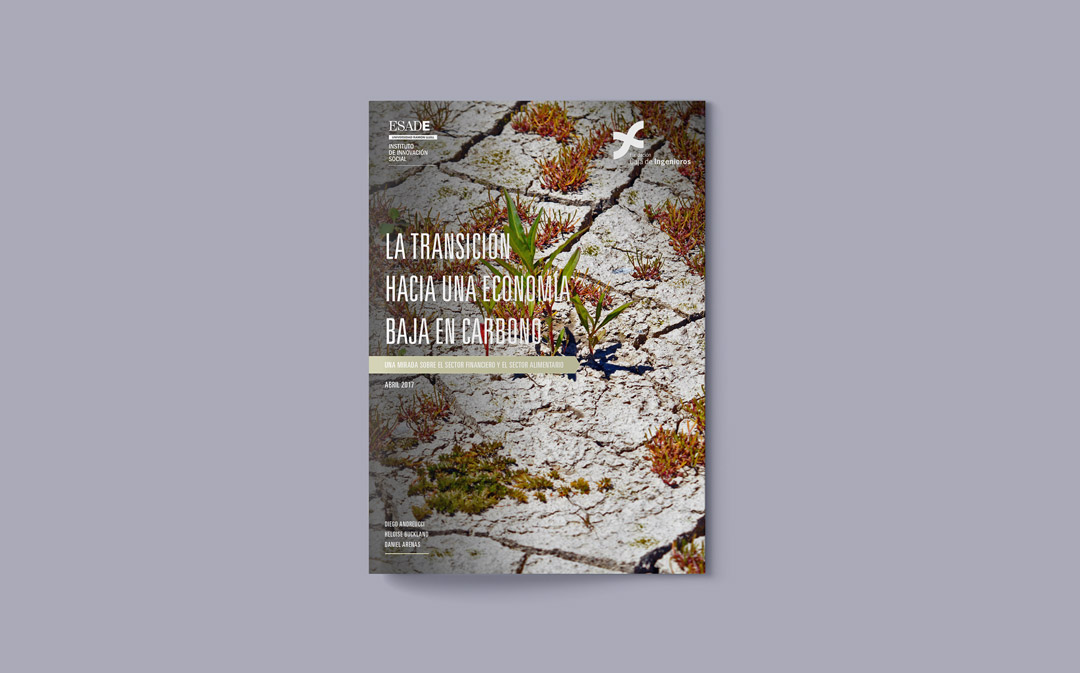Institute for Social Innovation
"La transición hacia una economía baja en carbono. Una mirada sobre el sector financiero y el sector alimentario"

This study identifies the key risks associated to climate change for two basic industries: finance and food. It also details the strategies that have been implemented to transition towards a low-carbon economy. On the one hand, important asset management companies have identified climate change as a “systemic risk” for the finance industry. On the other, the food industry is one of the production areas most affected by climate change. This is especially true in Spain, where desertification represents a serious threat for agriculture. At the same time, the food industry is a significant contributor to global emissions.
Based on a series of interviews with experts in the finance industry and a participatory workshop with key players in the food industry as well as a survey amongst leaders in the Spanish food and beverage industry, this study analyses and describes some of the transition strategies that have been adopted in both industries. After a summary of the climate horizon, the study analyses trends in the financial industry at the global and local scale. The analysis of the food industry focuses primarily on the situation in Spain and stands out for a series of innovations implemented in terms of food production and handling as well as in its distribution.
Infographic summary of the study
With the support and collaboration of Caja de Ingenieros Foundation
Continue reading this article online:
See online

